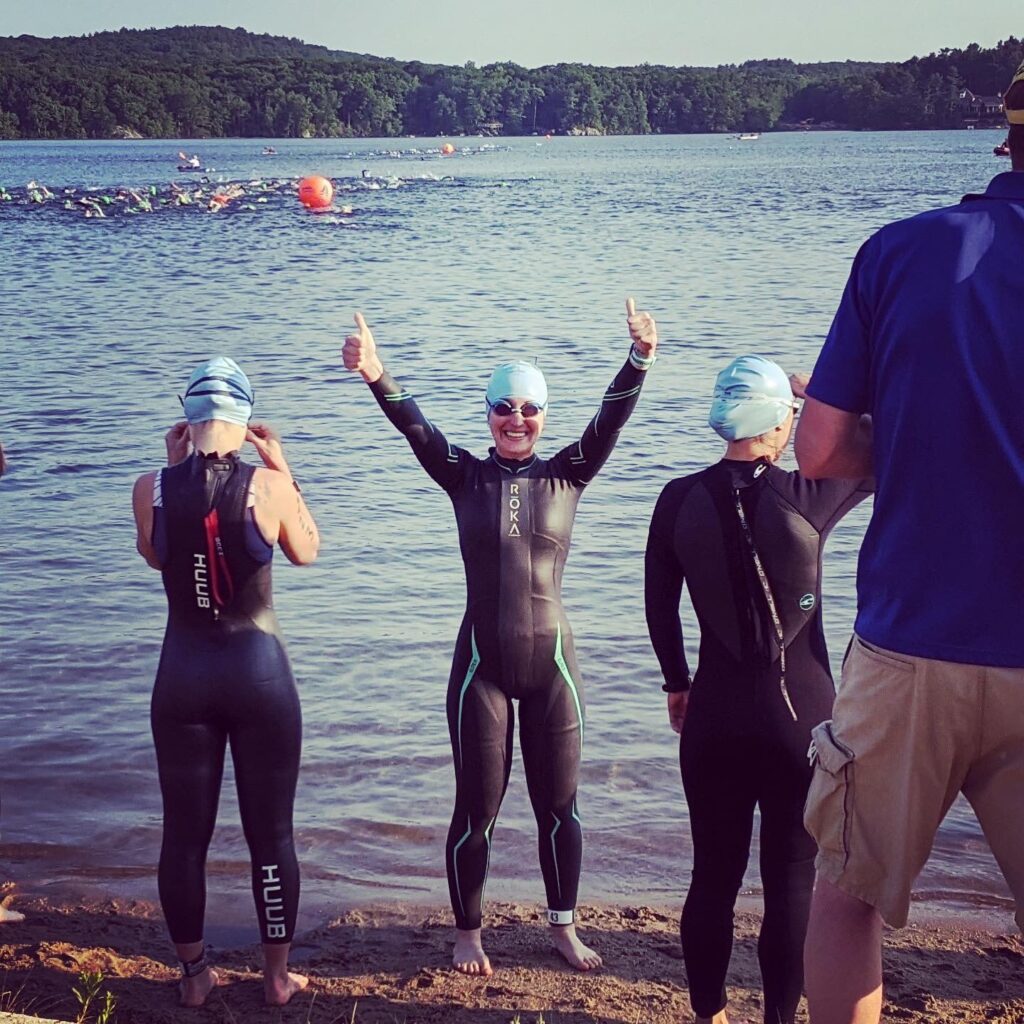
It’s the middle of racing season, so many of you might be approaching your main race, goal race, or just another race in which you’d like to do pretty well.
If you’ve been following a training plan or if you have a coach, race week is your final week of taper, the time period in which you ensure you’re well-rested for race day, but not so much that you’re not ready to perform at your best.
So what are some key things to do and NOT to do during race week?
TRAINING
☑️DO keep some intensity in your workouts.
Workout volume should decrease – so your sessions will be shorter – but some intensity should be included. Aim to mimic the intensity you’ll be putting out during your race for short stretches during your workouts, with plenty of recovery time as well.
☑️DO stick to your training plan.
You might question what your plan or your coach says, thinking, “Is this enough?” or “I should be doing more; I feel lazy!” Avoid temptations to add an extra mile, get in a bonus workout, or skip a run; stick to the plan and trust that it’s the best path to accomplishing your goal.
❌DON’T strength train.
This isn’t the week to try and build muscle. The work is already done, and any heavy lifting will be detrimental rather than helpful. Remember – and this goes for all of your training sessions – you won’t make any fitness gains during this final week, but you COULD do too much and not perform as well as you want to.
Warm up exercises, light mobility, and foam rolling is okay if you’ve been doing this already in your training.
NUTRITION
☑️DO make sure to hydrate.
Staying hydrated heading into a race will benefit you greatly, especially if your race conditions are going to be hot and/or humid. Start hydrating a couple days before the race, and if it’s a longer race in the aforementioned conditions, you can sip an electrolyte drink throughout the day as well as water.
❌DON’T substantially restrict OR increase food intake.
You might not need to eat as much as your highest volume week, but now is not the time to try to lose weight or decrease your intake as your workouts get shorter. You’ll need to be fueled for race day.
At the same time, there’s no need to go on a pasta overload for every meal for three days straight before the race. For a race lasting longer than a couple of hours, you can slightly increase your carbohydrate intake in the couple days before the race, focusing on breakfast the day BEFORE the race as your highest-carb meal.
It may also be beneficial for these longer races to reduce fiber intake the day or two before the race – but you’ll want to ensure you’ve practiced this strategy before implementing it (during meals the day before and morning of some of your longer training sessions in earlier weeks).
In general, don’t change it up a ton. Stick with foods you know work for your body.
OTHER
☑️DO prioritize sleep.
Use the time freed up by shorter workouts to focus on sleep. This is when recovery happens, so rest up to ensure you’re at your best on race day.
Aim to get enough good quality sleep during the entire week. You might not sleep very well the night before the race (travel, nerves, excitement) so making sure you’re already well rested in the prior days is key.
❌DON’T TRY ANYTHING NEW!
This includes doing stuff DIFFERENTLY than you have been. Some examples could be:
- A new brand of running shoes
- A new restaurant the night before the race
- A different pre-race breakfast that you haven’t practiced
- An exercise you don’t often do (hiking, yoga, yard work, walking around your race venue for hours sightseeing)
- Wearing a new outfit for the race that you bought at the pre-race expo
- Using on-course nutrition that you haven’t been using in training
- Anything that involves the phrase “winging it”
…DON’T DO IT! This is not the time to introduce new factors into the equation; stick with what you know.
Happy racing!
-Dina

Dina Grimaldi is a triathlon & nutrition coach who helps athletes reach their goals while finding the balance they need to fit training comfortably into their lives, and who guides and supports those with nutrition or health goals to cultivate a lifestyle of sustainable habits and a healthy relationship with food.